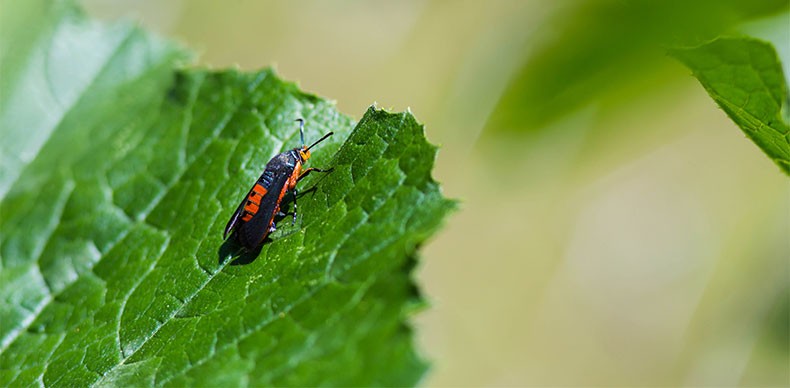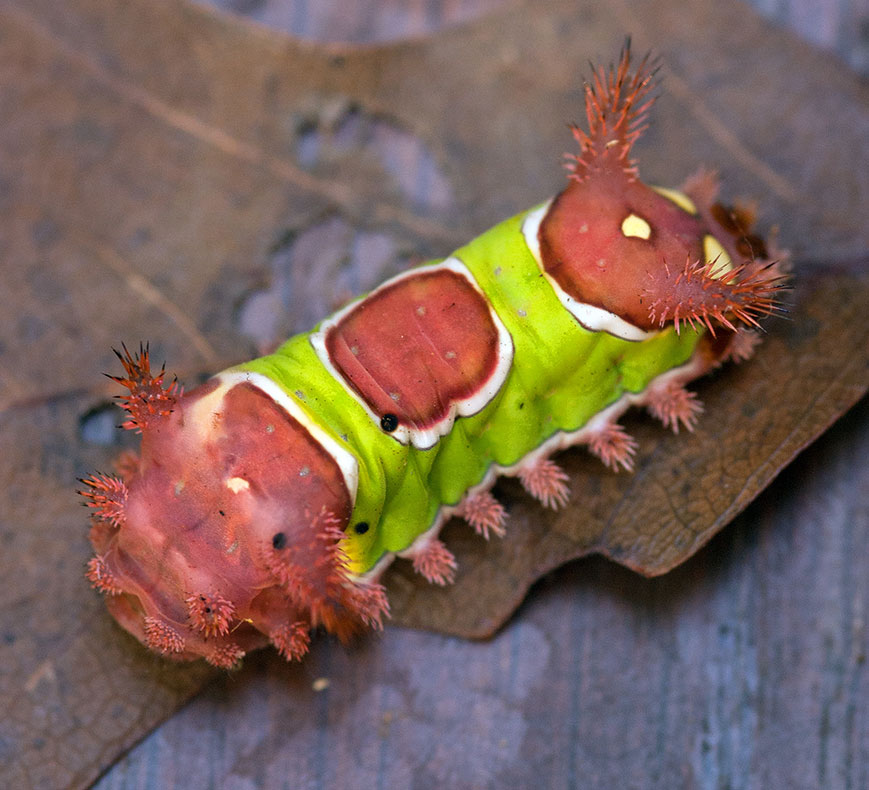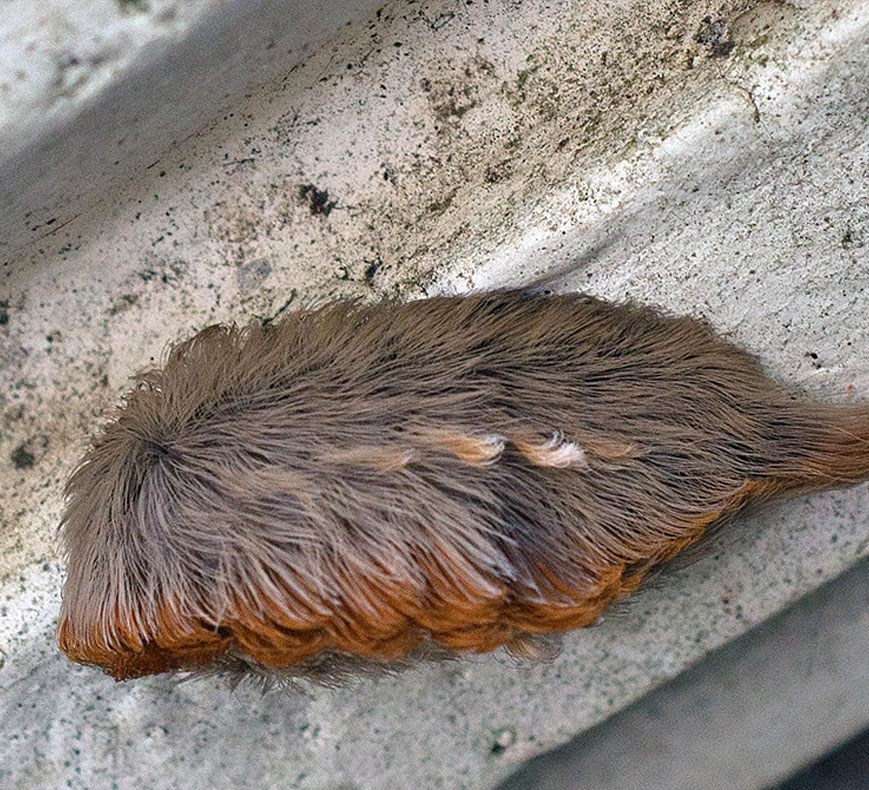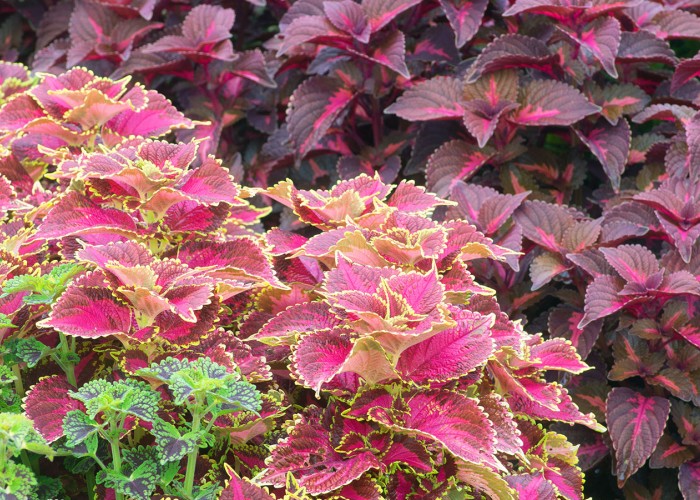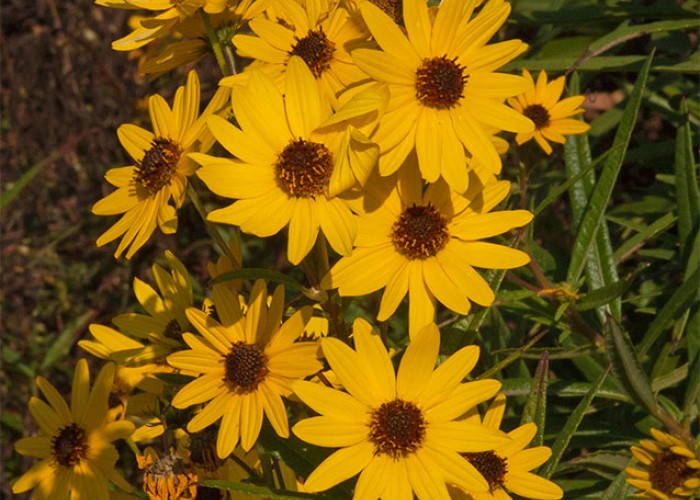How to Squash the Vine Borer
Plus Garden To-Do’s for June
By L.A. JacksonSquash vine borer moth
As spring matures into summer, vegetable gardeners are starting to have halcyon dreams of the coming harvest — but wait! Down in the squash patch — plants are dying!
Odds are strong this calamity is the dastardly work of squash vine borers. Scientifically known as Melittia cucurbitae, I call them “#$%#*>!!”
The problem starts with orange-colored, wasp-like intruders with dark wings flitting about squash foliage. They aren’t actually wasps, but rather squash vine borer moths looking to lay their tiny, rust-brown eggs on the plants’ stems and foliage. When the larvae hatch, they bore into leaf stems, where they then begin chewing the dickens out of them from the inside. This is what causes foliage on your squash and zucchini plants to wilt and die. (Pumpkin planters take note — vine borers can be a big problem for you, too.)
Odds are strong this calamity is the dastardly work of squash vine borers. Scientifically known as Melittia cucurbitae, I call them “#$%#*>!!”
Areas where larvae enter stems can be found in the form of small holes that usually have yellowish-brown yuck around them. You can carefully slit stems at the holes, find the offending borers (which can fatten up to about an inch long) and kill them with a needle, if you want, but I personally don’t have the desire to get down on all fours and perform surgery on a plant to dispatch such bothersome bugs.
A better way to stop squash vine borers in their tiny tracks is to start weekly sprayings with insecticidal soap at the bases of young plants. This will discourage adults from laying eggs and smother any that do make it onto the plants.
Another tactic to prevent destructive egg laying by the moths is to cover young squash plants with a lightweight row cover, such as Reemay, to physically keep them from the plants. However, since squash is best pollinated by insects, this barrier should be pulled back when the plants begin producing flowers.
Other good cultural practices to try out include the obvious: Severely infested plants should be yanked up and tossed in the trash — do not compost them. Also, rotate squash to other parts of the veggie garden every other growing season. In addition, since immature squash vine borers overwinter in the soil, till the veggie garden in late December and again in early February to expose these little nasties, as well as other hibernating bad bugs, to the frigid cold.
Garden To-Do’s for June
- Seen any weird-looking caterpillars in the garden lately? If so, observe but don’t touch. Strange as it may seem, there are actually caterpillars that can sting. Bristling with hollow barbs or hairs filled with venom for defense, these caterpillars aren’t aggressive, but they also aren’t something you want to brush up against — they can inflict pain similar to a wasp or hornet attack, and if you are allergic to such stings, you could have even bigger problems. In our state, two of the strangest looking that pack really mean stings are the puss caterpillar and saddleback caterpillar (see above).
- If you need to spray insecticides, don’t do it on a windy day. Also, wait until late in the afternoon, when the activity of friendly pollinators such as bees and butterflies is at a minimum.
- Now that summer heat is upon us, create interest in the water garden by adding tropical water lilies.
- Run out of space in the garden for ornamental plants? Think about hanging ‘em high. Hanging baskets in semi-shady spots such as porches and entryways will also liven up the landscape. For starters, consider planting any combination of begonias, impatiens, ivy, creeping Jenny, ferns or fuchsias.
-
More garden tasks for June
-
Share this story:

